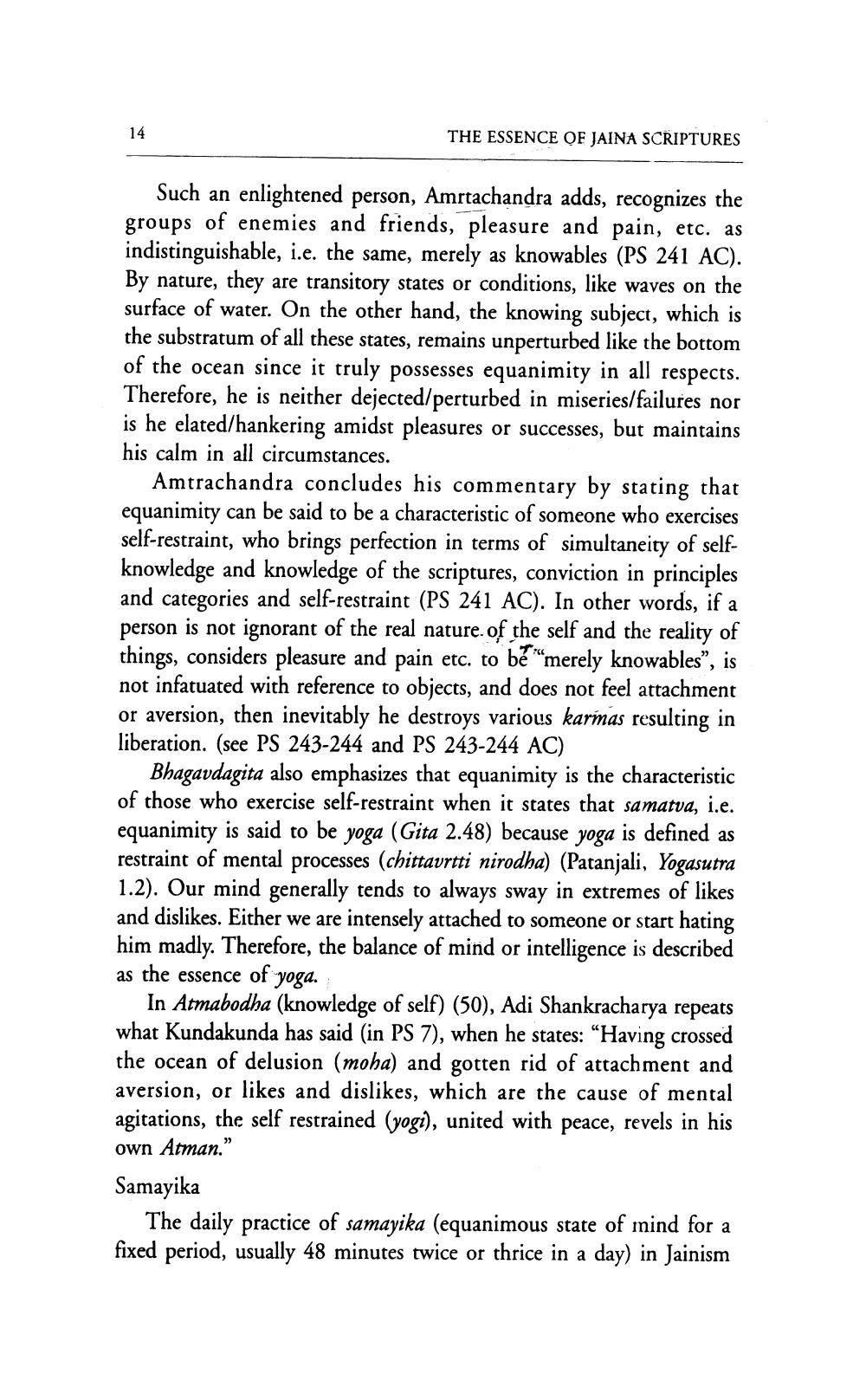________________
THE ESSENCE OF JAINA SCRIPTURES
Such an enlightened person, Amrtachandra adds, recognizes the groups of enemies and friends, pleasure and pain, etc. as indistinguishable, i.e. the same, merely as knowables (PS 241 AC). By nature, they are transitory states or conditions, like waves on the surface of water. On the other hand, the knowing subject, which is the substratum of all these states, remains unperturbed like the bottom of the ocean since it truly possesses equanimity in all respects. Therefore, he is neither dejected/perturbed in miseries/failures nor is he elated/hankering amidst pleasures or successes, but maintains his calm in all circumstances.
Amtrachandra concludes his commentary by stating that equanimity can be said to be a characteristic of someone who exercises self-restraint, who brings perfection in terms of simultaneity of selfknowledge and knowledge of the scriptures, conviction in principles and categories and self-restraint (PS 241 AC). In other words, if a person is not ignorant of the real nature of the self and the reality of things, considers pleasure and pain etc. to be “amerely knowables”, is not infatuated with reference to objects, and does not feel attachment or aversion, then inevitably he destroys various karmas resulting in liberation. (see PS 243-244 and PS 243-244 AC)
Bhagavdagita also emphasizes that equanimity is the characteristic of those who exercise self-restraint when it states that samatva, i.e. equanimity is said to be yoga (Gita 2.48) because yoga is defined as restraint of mental processes (chittavrtti nirodha) (Patanjali, Yogasutra 1.2). Our mind generally tends to always sway in extremes of likes and dislikes. Either we are intensely attached to someone or start hating him madly. Therefore, the balance of mind or intelligence is described as the essence of yoga.
In Atmabodha (knowledge of self) (50), Adi Shankracharya repeats what Kundakunda has said (in PS 7), when he states: “Having crossed the ocean of delusion (moha) and gotten rid of attachment and aversion, or likes and dislikes, which are the cause of mental agitations, the self restrained (yogi), united with peace, revels in his own Atman." Samayika
The daily practice of samayika (equanimous state of mind for a fixed period, usually 48 minutes twice or thrice in a day) in Jainism




